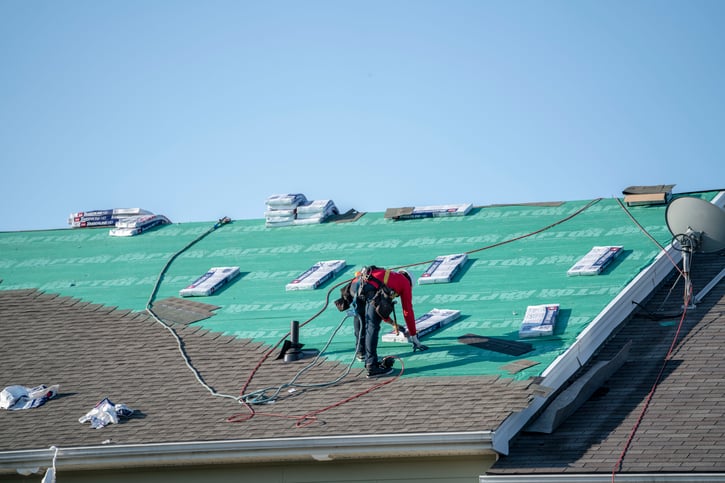Your roofing business is ready to go bigger in every way, from bigger projects to bigger clients. Win the contracts that can take your business to new levels of success with these tips for how to get larger commercial roofing jobs.
1. Line up your paperwork.
While homeowners may not always know to ask their roofer for documentation, like proof of insurance, commercial clients—especially larger ones—will need to see it. Make sure you have all necessary paperwork, from financials to insurance. Some projects require bonded contractors, so you may need to obtain that if you haven’t yet.
2. Get your safety ducks in a row.
Show commercial prospects your company takes safety and liability seriously with a documented safety plan. Having workers or supervisors with valid OSHA 10 or 30 certifications also adds weight to your proposal. (OSHA training is available in English, Spanish, and other languages.)
3. Nail project delivery processes.
Bidding on large commercial projects requires more than nailing their "perfect" cost number—building owners or project managers will want to know exactly how your crews will get the job done.
That makes it essential to detail how you’ll manage debris, particularly on large replacement projects.
Dump trailers, tarps, and dedicated cleanup crews have been the traditional tools of roofing, but that doesn’t mean those are the only tools available. An innovative roofing trailer, like the Equipter RB4000 lift, will completely change the way your crews manage debris on big job sites.
A streamlined, commercial-grade cleanup process will help your company finish jobs faster and reduce the risk of property damage. It will also keep the property cleaner from start to finish—and that can be a big-time differentiator when you're bidding a residential complex or retail property.
Jay Ors from Southern Coast Roofing in Florida won a 40-building apartment complex bid by showing project managers how his crews would use an RB4000 lift to manage the tremendous volume of debris.
4. Offer a selection of maintenance contracts.
Owners or managers at a larger facility have enough to juggle without having to worry about semi-annual inspections or occasional repairs. But they know these tasks are important for lowering long-term costs and protecting the building as well as the inventory or equipment it houses.
By offering a selection of maintenance contracts, you give larger facilities the resources they need to keep the roof in good repair. A lower budget contract option might simply include regular visual inspections, while a higher end contract might cover full inspections and minor-to-moderate repairs.
5. Target your online marketing to include commercial connections.
While Facebook can be highly effective for generating residential roofing leads, consider other avenues to connect with commercial contractors, property managers, and other decision makers.
For example, LinkedIn can be effective for building that network. Start by updating the company’s page and your personal profile—make sure both highlight how you’re different from the competition. Also join a few of the site's industry or regional business groups; they're an ideal place to ask or answer questions, so you can start building relationships with potential partners and clients.
6. Polish up your bid submission process.
Whether the prospect is a regional real estate developer or a large B2C manufacturer, they expect a certain level of professionalism from the contractors they hire. One way to convey that is by submitting a polished bid—one that clearly conveys you’re the best roofer for the job. Quick tips:
- Read the specs—at least twice.
- Make sure you understand every part, including scope of work, timelines, specified materials, and payment terms.
- Submit a clear, proofread, spell-checked proposal that addresses every spec.
Don't drive by one more commercial roofing project and wish you could have been the contractor. Use these tips to up your commercial game.

